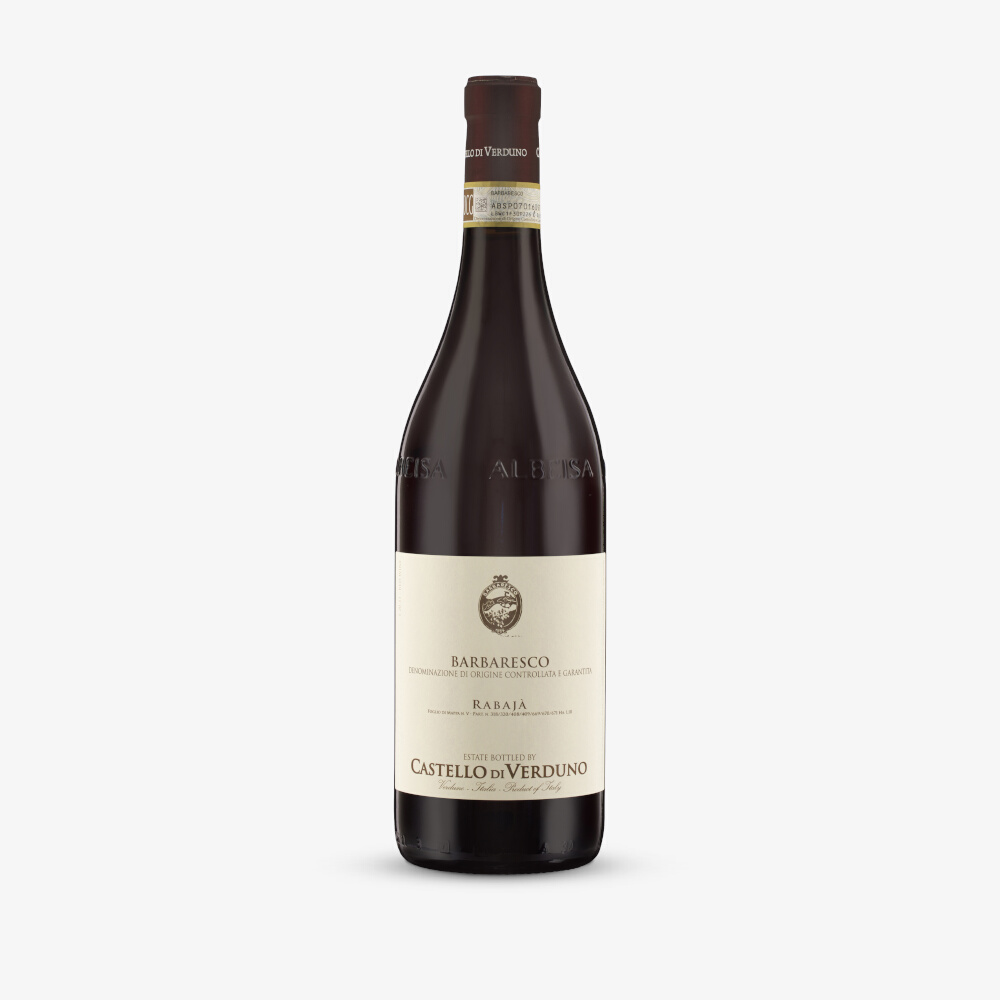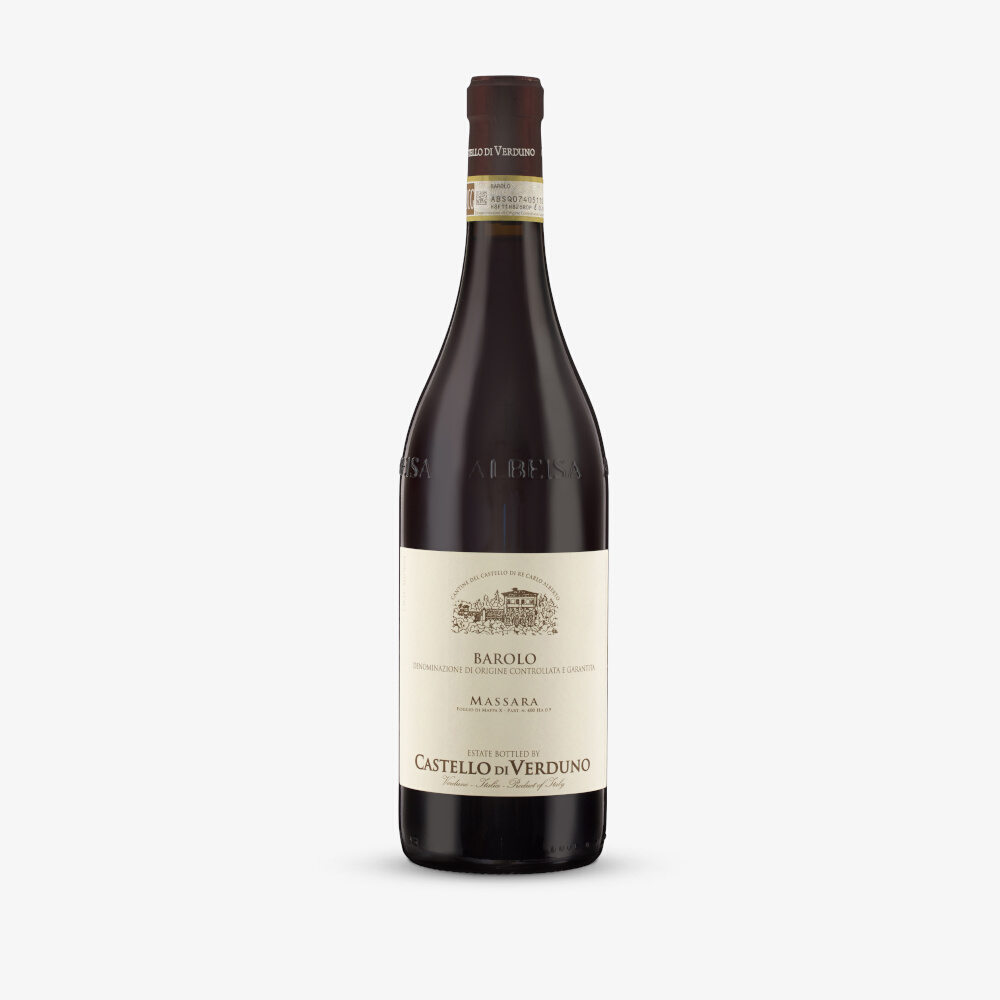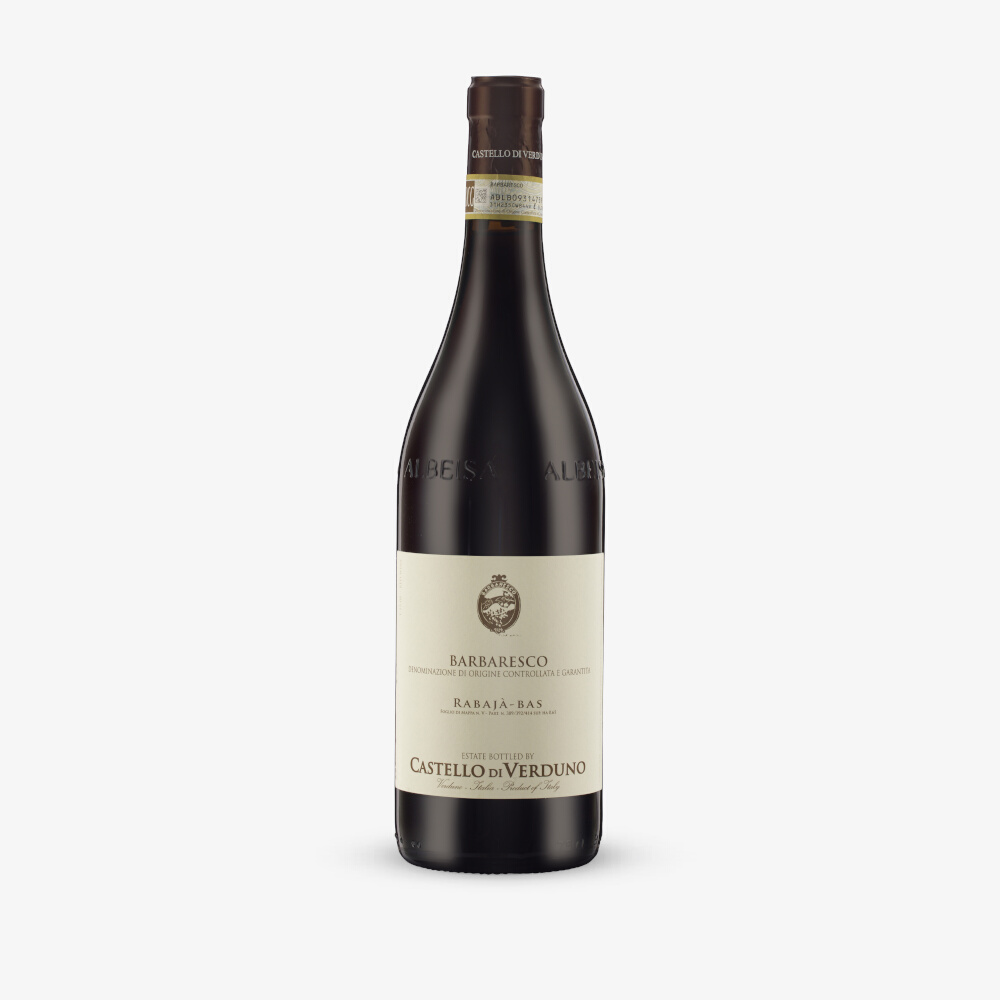
Castello di Verduno
The Castello di Verduno is one of the historic castles of Barolo, originally built in 1500, and thanks to the Burlotto family it also seems set for a glittering future. Nebbiolo was first vinified here in 1838 under the new ownership of King Carlo Alberto of Savoy. In 1909 the castle was acquired by the Burlotto family. It was in the 1950s that the Commendatore Giovanni Battista Burlotto, returning from Eritrea, set about restoring the castle to its former glory. Today his daughters run the estate. The Castello’s ten hectares of vineyard spread across Barbaresco and Verduno, the northernmost Barolo commune where the proximity to the river results in warm days but cool nights. Their top wines come from two of the region’s most hallowed vineyards Verduno’s Monvigliero and Barbaresco’s Rabaja. Apart from making fabulous Nebbiolos, the Burlottos are also arch-exponents of the rare Pelaverga variety. This fascinating red grape can only be found in Verduno, where it has been co-planted since the 1600s. It was in danger of dying out, however, until Castello di Verduno took the brave step of being the first to dedicate single vineyard plantings to the variety, in 1972. Success soon followed for the alluring, fruity and peppery reds it produced culminating in 1995 with the award of its very own DOC, Verduno. Interestingly the Burlottos also make a tiny quantity of excellent white made from the same variety, a blanc de noirs, that offers crisp clear fruit and herbal flavours. The wine-making here is traditional; soft, slow fermentations with 25-40 days of maceration on the skins followed by ageing in large old Slavonian oak casks, 24 months for the cru wines and 3 years for the cru riservas. These are refined, spirited, vital Barolos and Barbarescos that have an elegance that makes them very eminently drinkable young, yet with the balance and nerve to allow for long ageing.
2015 Vintage
“It is just the kind of vintage I love – fresh, drinkable but aromatic and silky too,” were winemaker Mario Andrion’s enthusiastic words about 2016. As for 2015 he considers it to be “One of the most beautiful vintages ever, it’s why we made some Riservas in this vintage.” To achieve greatness, you had to be careful on extractions in 2015 so Mario’s typically light-touch winemaking was a huge bonus to Castello di Verduno and has resulted in some exceptional wines. Those Riservas will be the subject of releases in the years to come but the exciting news with 2015 now is that it hails the first ever release of their Rabaja Bas. This is an exceptional vineyard that is totally separate to Rabaja. It is west facing, very steep and sits on the top of the hill above Paje. Hitherto to it was being blended into the regular Barbaresco but the vines are now 39 years old and as such Mario now feels the quality its great enough wine to merit it being bottled up on its own.
2016 Vintage
With their spread of vineyards across Verduno and Barbaresco, regular bottlings and Riservas, there is always a mix of vintages and wines on offer at Castello di Verduno. As a result tastings here offer the perfect viewing point to understand and appreciate the wider quality picture being painted by owner Marcella Bianco and winemaker Mario Andrion. Together, they have overseen a meteoric rise in quality over the last few years. For us this is an estate that has risen to the very top rank of wine production in Piedmont. The quality of such a wide range of vineyards and vintages prove this is no fluke. Starting with 2013, Mario thinks the latest Monvigliero is the best he has made yet and we concur. In our view it is simply outstanding. The 2015s buck the vintage’s trend a little, showing remarkable aromatics, lift and vibrancy. Finally, 2016 was a total triumph. The season was ideal – long and late. The cool temperatures at harvest allowed Mario to let the crushed grapes and juice undergo a week’s cold pre-fermentation soak, building perfume in the wines. Bravissimo!
2017 Vintage
Castello di Verduno as much as, if not more than, any other Piedmont estate value freshness in their wines. Winemaker Mario Andrion explained that 2017 was a challenging vintage where they had to work a lot harder to achieve this. Whilst not normally a fan of green harvesting, he decided to do a small bit during veraison to ventilate the vines particularly in the later ripening sites. That said he wanted to keep a good enough crop to slow ripening down, to ensure grapes ripened during the latter part of the season – for during these cooler September and October days, with greater day/night temperature differences, Nebbiolo can achieve phenolic ripeness more fully at the same time as retaining acidity and keeping sugar levels low. Canopy management was also important, according to Mario, allowing the vine to curl over and shade the bunches rather than cutting the tops off. Otherwise work in the cellar stays the same, with long slow submerged-cap fermentations lasting up to 60 days for the Cru Barbarescos and Barolos, followed by ageing in large Slavonian casks for 24 to 36 months. Their decisions during the season have been fully vindicated, these are some of the most vivid and agile 2017s you will come across.
2018 Vintage
Since his first full vintage making the wine here, in 2005, Mario Andrion has taken Castello di Verduno from strength to strength. Wines are made traditionally here - long submerged-cap macerations followed by ageing for 2-3 years in large used oak casks. Mario makes wines faithful to the historic style but has without doubt enhanced their levels of freshness and finesse. This is an estate absolutely on fire, making classic, fragrant, mineral Verdunos and elegant, seductive Barbarescos. Mario recalled that there was “a lot of green harvesting to do in 2018, to concentrate and ripen the crop. Also, we adapted winemaking to shorten skin contact (40 days rather than 65) but barrel ageing remained the same." He considers the wines to be “Aromatic, juicy and easy to drink, but with their good acidities I think you can keep them 10 -20’yrs." A beautiful, aromatic, nuanced set of wines rippling with energy and character.
2019 Vintage
“Drinkability does not mean ‘thin’ or ‘light’ or ‘fruity’ – it is something that is hard to describe but I think it is present in all of our wines. I want people to recognise them as clear expressions of Verduno and Barbaresco, but it is equally important to me that when you sit with a friend or loved one you can really – freely – enjoy the wine, quench your thirst, and be excited to open a second bottle.” This was winemaker Mario Andrion’s opening gambit as we sat down to taste the Castello’s new releases. Wise words for sure, but here they speak a truth that many aspire to and don’t necessarily achieve. These are insightful, silky, highly expressive wines, honed with great care and attention. Each time we leave their cellar we’re ever-more enlivened by the evidence of a team who absolutely adore their craft, and who want above all else to see their wines drunk by the people who love them. Modest and unassuming, they have never chased critics’ scores nor followed trends. Instead, as the pendulum swings back towards tradition and a light shines over the village of Verduno, the Castello’s measured, refreshing style is winning hearts and minds.
2020 Vintage
Mario Andrion is Head Winemaker at Castello di Verduno and one of the Langhe’s most gregarious characters. He must have charmed his way in to the job as a boy, for despite his energy, he’s been there for over twenty years. Finally, the wines are getting at least some of the credit they deserve. In that sense, it is tempting to find an inflection point; a step-change in the vineyard or cellar that resulted in the evolution of style and fortune. But in Castello di Verduno’s case, it is one of those reassuring examples of a small estate just quietly going about their business, producing consistent, slender, attractive wines for years. Thanks in part to the halo that shines over Monvigliero, the Castello’s effusive, finely tuned wines are at last on the radar. “Our wines are unusual in that we work with the most gentle Barbaresco-like Barolo sites, and the most complex Barolo-like Barbaresco sites” they like to remind outsiders. Advocates for long macerations and fine, neat tannins, the 2020s were produced in the usual fashion; time on the skins a little shorter than in 2019 but still classically hewn – 45-60 days for the single crus, around 30 days for the straight Barolo and Barbaresco. Ageing is carried out in traditional oak casks, 18 months for the straight Barbaresco and 20-22 months for the rest. As ever, this is an immediately attractive, echoing style of Nebbiolo that will appeal to wine drinkers of all inclinations. The Barolo Classico (produced from fruit exclusively in the Verduno commune) feels more complete and accomplished than ever this year, the perfect calling card for the estate.
2021 Vintage
The Castello di Verduno style here is one of fragrant, juicy, drinkability – never daunting or deep in colour, the wines are instead slender and focused. They can be drunk and enjoyed in youth and the best wines age, too. It does seem that the Castello is at last getting at least some of the credit they deserve for these delicious wines. In that spirit, the estate has opted to bring forward the release of the more seductive, fruit driven, ethereal 2022 Barbarescos and hold back the tighter 2021s for an extra year. In tasting through the wines for this offer, Mario Andrion has clearly navigated the different vintages with aplomb – adapting the level of extraction, duration of skin contact and ageing, to preserve the inherent qualities of each year. While the vintages are distinct from one another, they all share a sense of lift and ruby-like bright cherry fruits. Broadly speaking, the estate favours long macerations and ageing in traditional, large casks for 18-22 months depending on the wine. As ever, this is an immediately attractive, echoing style of Nebbiolo that will appeal to wine drinkers of all inclinations. The Barolo Classico (produced from fruit exclusively in the Verduno commune) is the perfect calling card for the estate.
Results: 11








